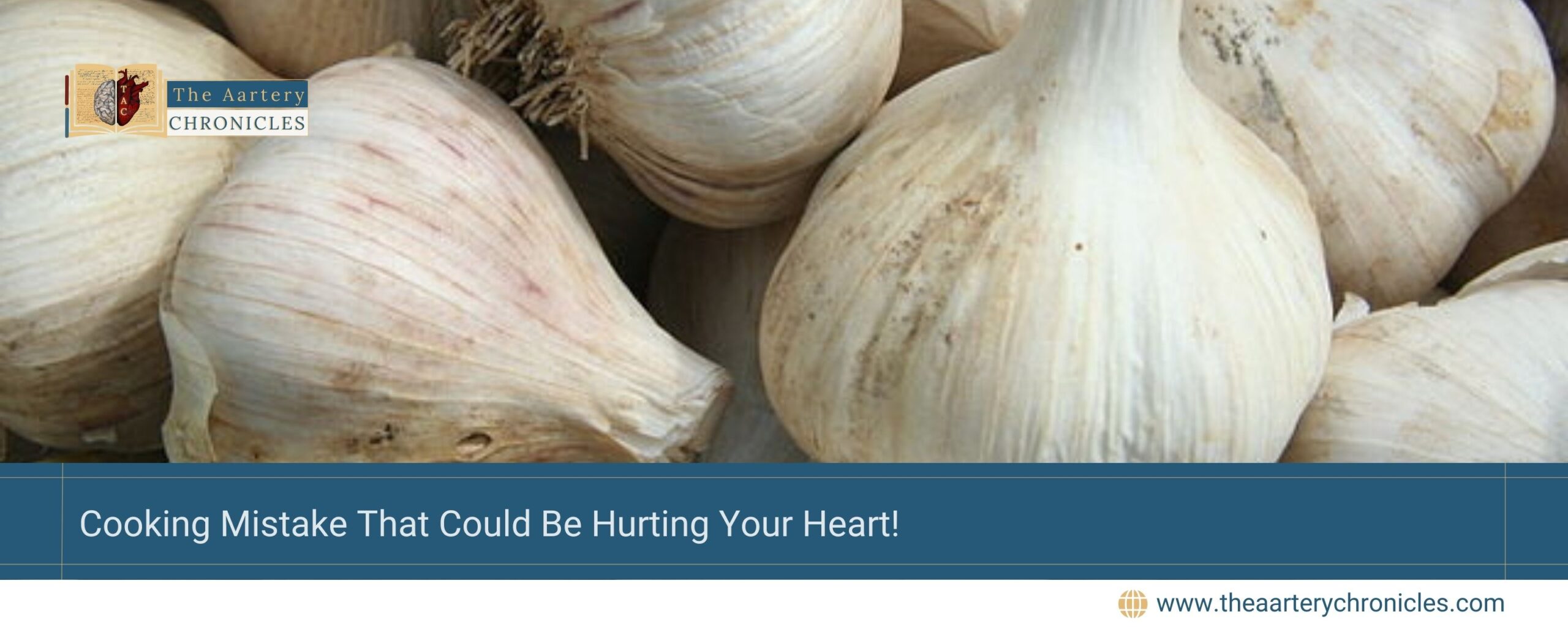

Cooking Mistake That Could Be Hurting Your Heart!
A recent Japanese study reveals that cooking garlic and onions at high temperatures in vegetable oil may generate trans-fatty acids (TFAs), which are linked to serious heart health risks. The research, conducted by scientists from Meijo University, highlights the role of natural sulfur compounds in promoting the formation of these harmful fats during cooking.
What Are Trans-Fatty Acids?
Trans-fatty acids (TFAs) are a type of unhealthy fat that can accumulate in the arteries, restricting blood flow and increasing the risk of heart attacks. While TFAs are often found in processed foods, this study shows they can also form in home kitchens during high-temperature cooking.
How High-Temperature Cooking Creates TFAs
The researchers explained that unsaturated fatty acids (UFAs), typically regarded as beneficial, can undergo a chemical change called trans-isomerisation when exposed to high heat (150°C or above). This process transforms UFAs into harmful TFAs.
Vegetables like garlic, onions, leeks, and shallots contain sulfur compounds, such as isothiocyanates and polysulfides, which significantly accelerate this transformation when these vegetables are cooked in vegetable oils.
Findings of the Study
The study, published in Food Research International, tested several sulfur-rich vegetables, including garlic, onions, and leeks, alongside oils like soybean and olive oil. The results showed that:
- When heated above 140°C, sulfur compounds increase the trans-isomerisation of UFAs in vegetable oils.
- Polysulfides found in garlic and onions were particularly effective at triggering this reaction.
- Antioxidants, like alpha-tocopherol, can reduce the isomerisation caused by isothiocyanates but are less effective against polysulfides.
Is Everyday Cooking a Concern?
Luckily, the emission of TFAs during regular cooking is low at moderate temperatures. However, frequent high-temperature cooking with garlic and onions could increase exposure to TFAs.
Health Implications of TFA Consumption
According to the World Health Organization (WHO), TFAs are responsible for over 278,000 deaths worldwide each year. To reduce health risks, the WHO recommends limiting TFA intake to less than 1% of daily energy consumption.
Tips to Minimize TFA Formation
- Use moderate heat: Avoid cooking oils and vegetables at excessively high temperatures.
- Opt for alternative cooking methods: Steaming or boiling garlic and onions may help reduce TFA risks.
- Choose oils carefully: Some oils, like olive oil, are more stable at lower heat.
- Incorporate antioxidants: Adding vitamin E-rich foods may help mitigate some of the risks associated with sulfur compounds.
Conclusion
This study highlights an unexpected source of TFAs in everyday cooking, emphasizing the importance of mindful cooking practices. By managing heat and choosing healthier methods, individuals can enjoy flavorful meals without compromising heart health.
Source: Inputs from various media Sources
I’m a pharmacist with a strong background in health sciences. I hold a BSc from Delhi University and a pharmacy degree from PDM University. I write articles and daily health news while interviewing doctors to bring you the latest insights. In my free time, you’ll find me at the gym or lost in a sci-fi novel.









